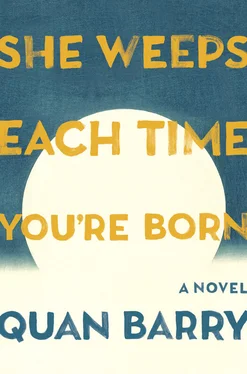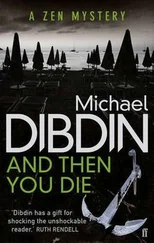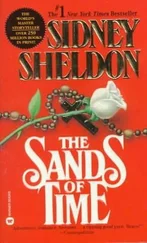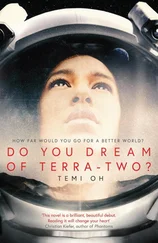The dysentery. The malaria. The fevers that would never break. The lack of protein. The sun. The rain. The expected and the unexpected. The monotony. The lack of privacy. The self-critiques. The constant acting. Pretending you were ashamed of yourself when you weren’t.
Time passed. Men died. Somehow An held on. He wasn’t the strongest or the bravest or the most resolved. When someone told him a year had passed, even he didn’t know how he’d done it.
The first time he got put in the box it was a mistake. Even the guards knew he wasn’t the one who had killed the hen out of spite. The eggs were strictly reserved for the camp chief. Comrade Ngu was a slight man with a lisp and no mercy. There was talk he had spent the war in China keeping the supplies flowing. When the hen was found with its neck snapped lying at the foot of Ngu’s house, even the guards shuddered. Among the prisoners there was already a rumor circulating that one of the guards had done it because he was tired of watching Ngu eat eggs every morning while the guards had none.
They were trying to get someone to confess. The door to one of the punishment boxes was gaping open. Barrack by barrack the prisoners were lined up. The guilty one was told to step forward or there would be repercussions for all. The last time they had been threatened with group punishment they had been denied water for two days. Four of the older men had died out in the jungle. They were already late to head out. It meant none of them would make their quotas. Maybe they wouldn’t get anything to eat. An looked at Mr. Lu standing to his left. Lu was in his sixties. He had once been a professor of law at Saigon University. He had helped negotiate the Paris Accords. An wasn’t really thinking when he stepped out of line. He walked up to the front of the box. Behind him hundreds of men were holding their breath. Up close it wasn’t even as deep as his arm, the thing an upright coffin. He closed his eyes and stepped inside. The guards stood staring at one another. Well shut it, someone said. The door creaked shut behind him, hinges groaning as if with pain. He could hear the sound of the bolt being rammed home. Inside there wasn’t even room to turn around or raise his arms.
Later he tried to tell the others it hadn’t necessarily been unpleasant. That when the discomfort came you had to settle into it. You had to make peace with the ants crawling up your leg, the smell of urine and feces as if you were steaming in them because essentially you were, the sweat trickling into your eyes and the sting that became a blurring. He tried to remember the orange-robed monk from those first days in the holding cell in Qui Nhon. The monk whole worlds away, his robe caked with shit. He began to see colors. He could hear the sounds of the sea. Each time his blood coursed through his body, he felt the tiny kick as his heart whooshed it through. There wasn’t even space to fall down. Before he blacked out, he knew if he came out of the box alive, he would make it through absolutely everything. It was out of his hands. The world would decide if he should live or die. He was starting to merge into an even greater darkness, heart shuddering like a drum, somewhere the ocean swelling like a graveyard. He knew somewhere someone was crying for him.
Today all over Cholon in Ho Chi Minh City there are small plaster statues of the Lady of a Thousand Eyes, an eye nestled in the palm of each of Her thousand hands. When you can’t hear yourself screaming over the rancor of the waves, She will hear you. And even if She doesn’t hold out Her various arms to you like the branches of a tree, be comforted in the fact that She hears and sees everything .
TU WAS RIGHT. AN HOUR PASSED BEFORE THE WEATHER HIT. The ship groaned through its joints. All but a few of them were crammed in the hold. Body on top of body on top of body on top of the calamitous waves, the water a foot deep and rising. Rabbit was lying on top of Qui. Even amid the turmoil, she could smell the sweet milk sloshing back and forth in Qui’s chest. With each thirty-foot wave, the cold waters rushed straight down the stairs. Water like dark hands looking to drown them.
Just before the four of them had scrambled down off the pilothouse, Rabbit had seen something off in the distance twinkling like a star on the ocean. Ba, she said, pointing. Tu had been looking at the sky and remembering the sounds of men being lined up and shot. He wondered if the karma was now bearing down on them. Then across the thronging waters he could see something in the troughs of the waves, a tiny light cutting through the darkness. It was another boat. He realized the boat he was on must look like that, a mote in the vastness. He hoped for the distant ship’s sake it wasn’t a boat just like theirs, a vessel stuffed to the rafters with refugees. On the other hand if it were anything else and if they escaped the jaws of the storm, there would be it to deal with.
On their way off the roof, Tu and Rabbit stepped into the pilothouse to point out the distant boat to Duc. Duc was standing at the wheel. Beside him Hai was shouting directions — when to speed up the side of a wave, when to ride it back down. In the chaos of the small room Rabbit’s head suddenly filled with a silvery light. Her ears began to itch. She felt dizzy as the voice grew stronger. Someone had died right there in the pilothouse. It had happened recently. And now someone was trying to talk to her, a spirit desperate to be heard. She closed her eyes. Please, the voice said. Take whatever you want, then the sound of a fishing knife punching two holes in the side of the throat, the air hissing out red. Rabbit could hear a body slump to the floor, blood pooling around it like a halo. I hear you, she said. Already Tu was ushering her out the door and down into the darkness.
In the hold the smell of urine and vomit was overwhelming. They had to crawl over the others to find Huyen and Qui nestled up against a wall. Qui pulled Rabbit to her chest, and Rabbit let herself be held there among the sweetness. Just this time the day before they had been gliding down the Mekong, the Harvest Moon like a lantern. Now they found themselves counting the seconds it took to crest a wave.
They were still counting their way up one. In the hold there was utter silence as the boat ascended. Even the smaller children kept still. The way up seemed interminable, the time lengthening, then longer. Huyen thought of the night she had wriggled the abraded cone of the cypress tree up inside her granddaughter. How she had told Qui it was a trick to ensure the birth of a boy, the cone oblong like a penis. All night Qui had stayed curled up by the fire with what Huyen told her was the pain of creation, Mother Dragon in the same pain when she had thrashed over the formless waters and created the earth, Mother Dragon’s drops of sweat diamonding the sky and turning into stars, that inner space burning until Qui wanted to claw it out with her own fingers. In the morning Huyen had tugged on the fishing line she had tied to the cone. The wet thing slipped out sending the dark blood gushing. In Huyen’s mind it was the only course of action. Wartime was no place for a child to have a baby. Parts of the cone came out in gelatinous pieces, though Huyen didn’t see the thing itself.
They were nearing the top of a wave, the monster close to fifty feet. At the top there was a cusp between states as the boat shifted momentum. They found themselves waiting for it, that split second of balance, the neither coming nor going, the worst over, the worst yet to come, the blood darker and more plentiful than anything Huyen had ever seen. When would it stop? Qui lay hot as a tick in the light of the fire. They hit the top of the wave. At one point Huyen looked down at her hands, her palms as if someone had dipped them in blood.
Читать дальше












